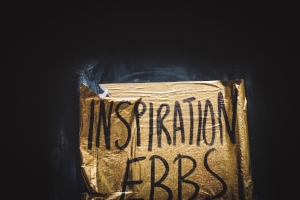So you want to be more creative in art, writing, work, or whatever. Here are some tips that have worked for me over the years.
Ignore others. The more original your ideas, the less good advice other folks will be able to provide. Plus, people tend to naysay and undermine new ideas, whether out of jealousy or fear. If you truly have a new idea, it’s often best to cultivate it internally before getting the opinions of others.
Your idea doesn’t have to be huge – it just has to invoke a change in the world. The two are not necessarily the same, even though we often assume they are.
Put in the hours and effort. Doing anything worthwhile takes an extra push. What separates the success stories from failed people is time, effort, and stamina.
Everyone is born creative. We all doodled with crayons in kindergarten. We imagined impossible things and were happy doing so. In high school, society stole our markers and construction paper and replaced it with algebra and textbooks….and then our workplaces replaced them with mundane memos and company policies. Blah. Deciding that you want to be creative is just you taking back your crayons – the crayons you should have been able to keep all along.
Don’t stand out from the crowd. Avoid the crowd altogether. Your plan to showcase your creativity needs to be as creative as your work itself. Don’t blindly follow the same methods others follow just because it’s “what you’re supposed to do.” Find your own path, even if it I winding.
If you accept rejection, it cannot hurt you. You will hear “no” often. If you hear it enough, you’ll become numb to it. You might hear no because people don’t understand your ideas, or what you are doing is so different that they think it must fail. Accept rejection as collateral damage. Their rebuffs won’t sting for long if you are certain you’re destined for greater things.
The world is changing. Your creative vision needs to change as well.
Sing in your own voice. People can recognize a knockoff a mile away. Once you’ve been pigeonholed as a bootleg version of someone else, you’ll never crawl out from under that label.
Don’t worry about finding inspiration. It will arrive, eventually. You’re better off not pushing the deal. If you really want to write but it’s not coming easy, go read for a while. If you really want to draw but have no ideas, scroll through some artistic photos. Your body requires food to have enough energy to workout. Similarly, reading or studying the creative work of others can fuel your own creativity.
Always create from the heart.
These creative tenets seem to work for me. Maybe one or two of these ideas will ring true for you. Safe travels as you embark on your creative journey!












